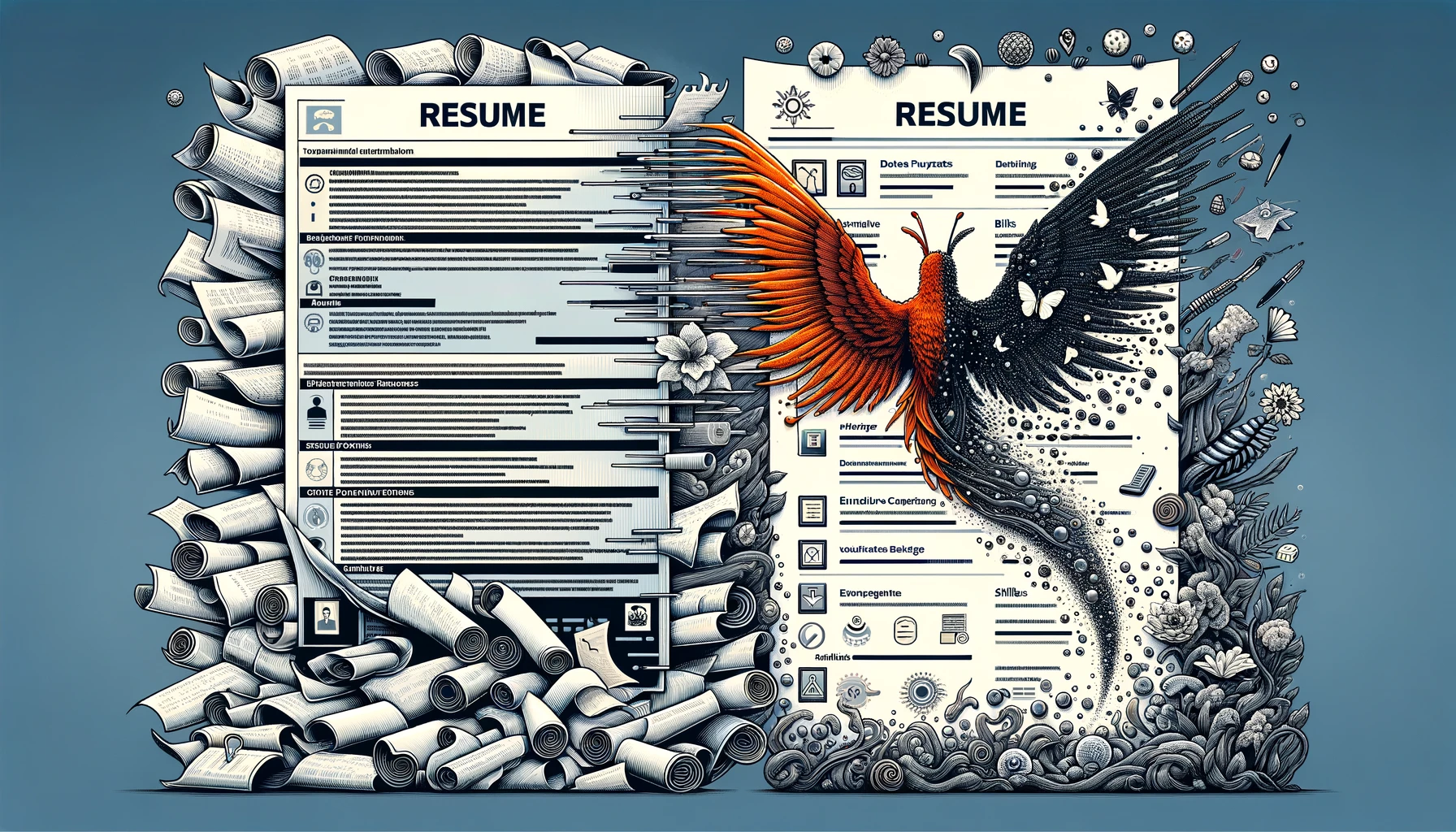In a world where first impressions can make or break career opportunities, your resume serves as the gateway to showcasing your professional prowess. It’s not just a mere document listing your work history; it’s your personal brand encapsulated in a few pages.
A well-crafted resume is like a carefully curated advertisement for you, highlighting your skills, experiences, and unique value proposition to potential employers. In essence, it’s the key that unlocks doors to exciting job prospects and career advancements.
But here’s the twist – crafting an effective resume goes beyond just listing down your qualifications and past roles. It’s about strategically presenting yourself in a way that captivates recruiters at first glance and compels them to delve deeper into all that you have to offer.
Think of it as storytelling with bullet points; each word meticulously chosen to paint a vivid picture of why you are the perfect fit for that dream job. So, if you’re ready to elevate your resume game from mediocre to exceptional, buckle up as we debunk three common myths surrounding resumes and unveil the secrets to creating a standout CV that will grab attention for all the right reasons.
Debunking the One-Page Rule: When Length Matters
In the realm of resume writing, there’s a persistent myth that a quality resume must fit snugly onto one page. While brevity is valuable in capturing attention quickly, it’s crucial to prioritize quality over strict adherence to an arbitrary length limit.
A longer resume can be justified for seasoned professionals with extensive experience or those pursuing academic or research roles where comprehensive details are essential.
When stepping beyond the confines of a single page, focus shifts from quantity to strategic curation. Emphasize relevant achievements and skills while tailoring each section to align with the specific job requirements.
By adopting a structured approach – such as using clear headers and bullet points for easy navigation – you can showcase your expertise effectively without overwhelming recruiters with unnecessary information. Remember, in the world of resumes, substance triumphs over sheer brevity.
Listing Every Job Experience
In the world of resume writing, there’s a common misconception that more is always better when it comes to listing job experiences. However, the truth is that quality should always take precedence over quantity.
Rather than overwhelming potential employers with an exhaustive list of every job you’ve ever held, the key lies in strategically selecting and highlighting those experiences that best demonstrate your skills and accomplishments.
Think of your resume as a highlight reel rather than a comprehensive history – it should showcase your most impressive performances.
When deciding which job experiences to include on your resume, consider the relevance of each position to the role you are applying for. Focus on those roles that directly relate to the desired job and emphasize the skills and achievements that align with the employer’s needs.
By tailoring your resume to highlight only the most impactful experiences, you not only save valuable space but also make it easier for hiring managers to quickly grasp why you are a strong candidate for the position.
Using Fancy Templates is Key
In the realm of resume writing, there exists a pervasive myth that the use of fancy templates is essential to catch the eye of potential employers. However, it’s time to debunk this fallacy and focus on what truly matters: content.
While a visually appealing layout may initially draw attention, it is the substance of your resume that will ultimately leave a lasting impression. Employers are not looking for intricate designs; they are seeking candidates who can effectively communicate their skills, experiences, and accomplishments.
Instead of investing hours in selecting the perfect template with flashy graphics and colors, channel your energy into crafting compelling content that showcases your qualifications. A clean and well-organized resume with concise bullet points highlighting relevant achievements will far outweigh any elaborate design elements.
Remember, recruiters typically spend mere seconds scanning each resume, so make sure your content speaks volumes about your capabilities at first glance. By shifting the focus from aesthetics to substance, you can create a powerful resume that resonates with hiring managers and sets you apart from the competition.
Conclusion: Recap of Debunked Myths and Key Takeaways for Creating Compelling Resumes
Now that we’ve peeled back the layers on common resume myths, it’s time to solidify our understanding and extract actionable insights. Firstly, remember that a resume isn’t just a laundry list of tasks; it’s your professional story narrated through accomplishments and results. By debunking the myth that longer resumes are better, we embrace conciseness and clarity in showcasing our most relevant experiences.
Next, let’s shatter the misconception that generic resumes fit all job applications. Customization is key – tailor each resume to mirror the requirements of the specific role you’re eyeing. Your resume should whisper to employers why you’re uniquely suited for their position, not shout aimlessly into the void.
Lastly, dispel any doubts about embellishing or lying on resumes. Honesty is not only ethical but also strategic. Authenticity builds trust with potential employers and sets a strong foundation for genuine connections during interviews. Crafting compelling resumes doesn’t involve smoke and mirrors; it thrives on authenticity rooted in your achievements.
As you craft or revamp your resume armed with these newfound truths, remember this: your resume is a reflection of your professional identity—make sure it reflects who you truly are as an invaluable asset in today’s competitive job market.





